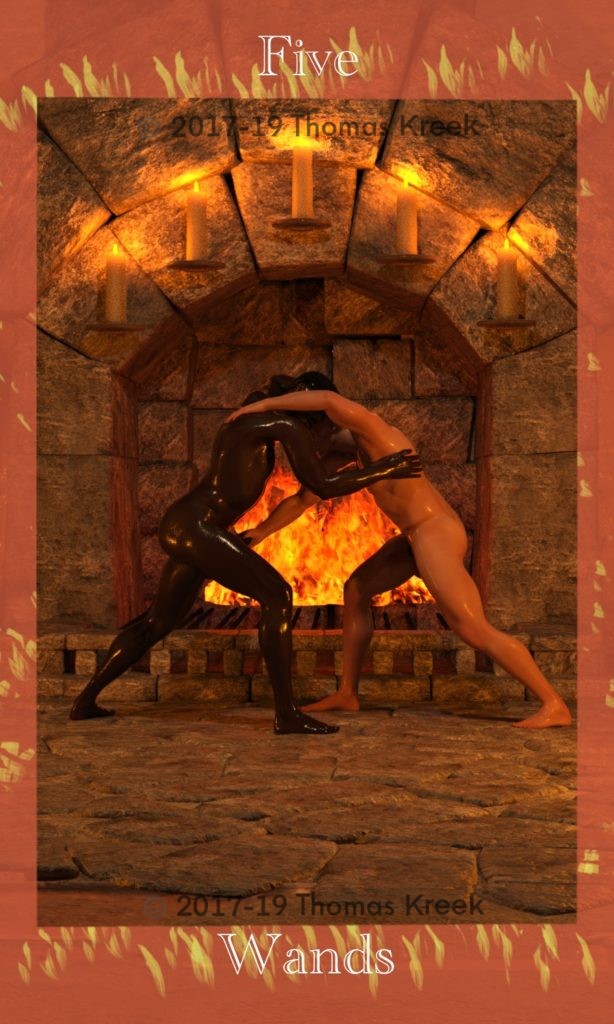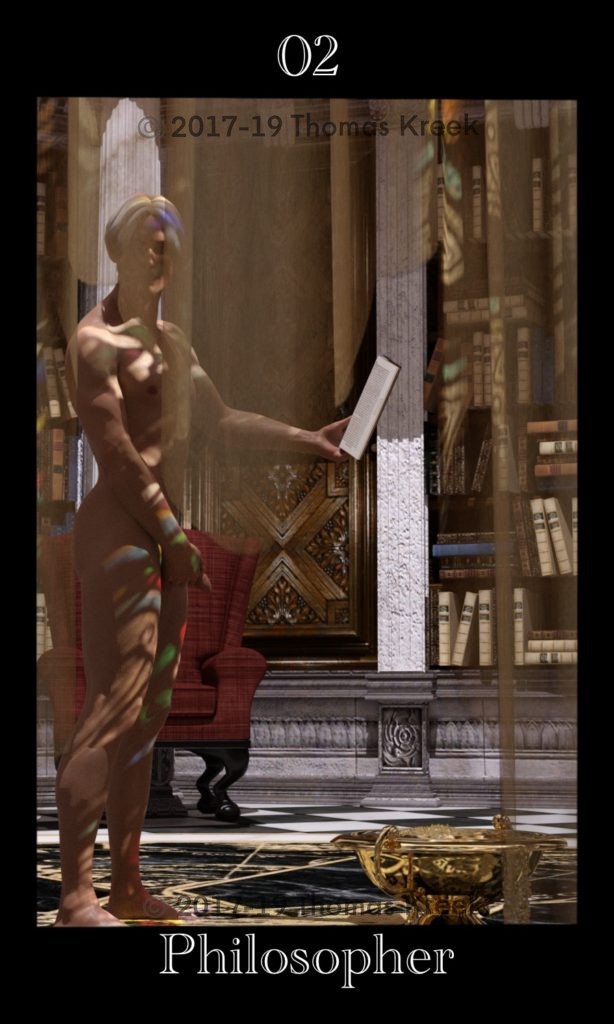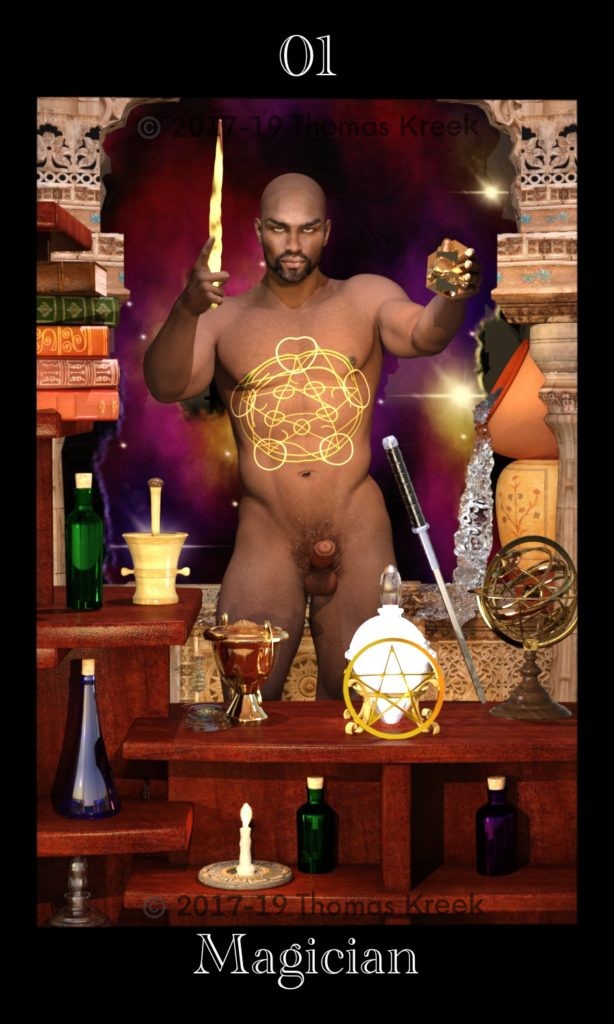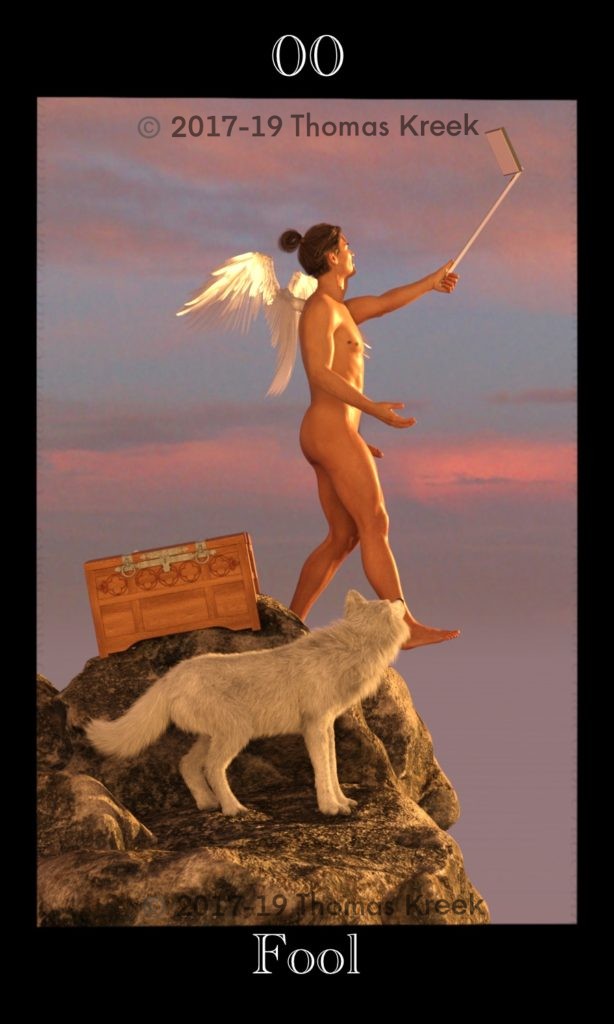Competition. I see it as a struggle for advantage, but not a war. Playful, yet serious. There is ego at stake. When i see the card in other decks, the imagery doesn’t make me think that material wealth is the direct result of the match, but that the winner will gain advantage, to improve his position. Additionally, i see this play as a way to work out some tensions between them, and find some release.
The image is inspired by a scene from “Women in Love,” a Ken Russell film from 1970.




